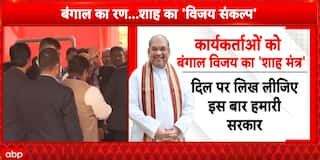'If Not Now, When?': Emotional Australian PM Unveils Referendum Question On Indigenous Recognition
Australia is seeking to give more recognition to its Indigenous people, who have inhabited the continent for 60,000 years but are not mentioned in the 122-year-old constitution.

New Delhi: Australian Prime Minister Anthony Albanese on Thursday got emotional as he revealed the question the government wants to ask in a referendum on whether to recognise Aboriginal and Torres Strait Islanders in the country's constitution.
"If not now, when?" Albanese asked, choking up during a televised media conference, the news agency Reuters reported.
“That’s the question before the Australian people, nothing more, but nothing less,” said an emotional Albanese.
"For many ... this moment has been a very long time in the making," Albanese said. "Yet they have shown such patience and optimism through this process, and that spirit of cooperation and thoughtful, respectful dialogue has been so important at arriving at this point in such a united fashion."
Australia is seeking to give more recognition to its Indigenous people, who have inhabited the continent for 60,000 years but are not mentioned in the 122-year-old constitution.
Making up about 3.2% of Australia's near 26 million population, Aboriginal people track below national averages on most socio-economic measures and suffer disproportionately high rates of suicide and imprisonment.
According to Reuters, the referendum, which will take place between October and December, will aim to enshrine in the constitution recognition of Indigenous people through the formation of a consultative committee to parliament called the "Aboriginal and Torres Strait Islander Voice."
It would provide non-binding advice to parliament on matters that affect First Nations people.
The government will introduce the bill next week, hoping to pass it in the parliament by the end of June. Any constitutional alterations require a national referendum.
Meanwhile, the opposition leader Peter Dutton said the government still had not responded to his queries on how the consultative panel would function and he needed more details.
"We will decide in due course whether we support the Voice or oppose it," Dutton told reporters.
(With inputs from Reuters)
Related Video
Astrology Forecast 2026: Astrology Forecast Flags Health, Power Challenges for Trump in 2026s





































